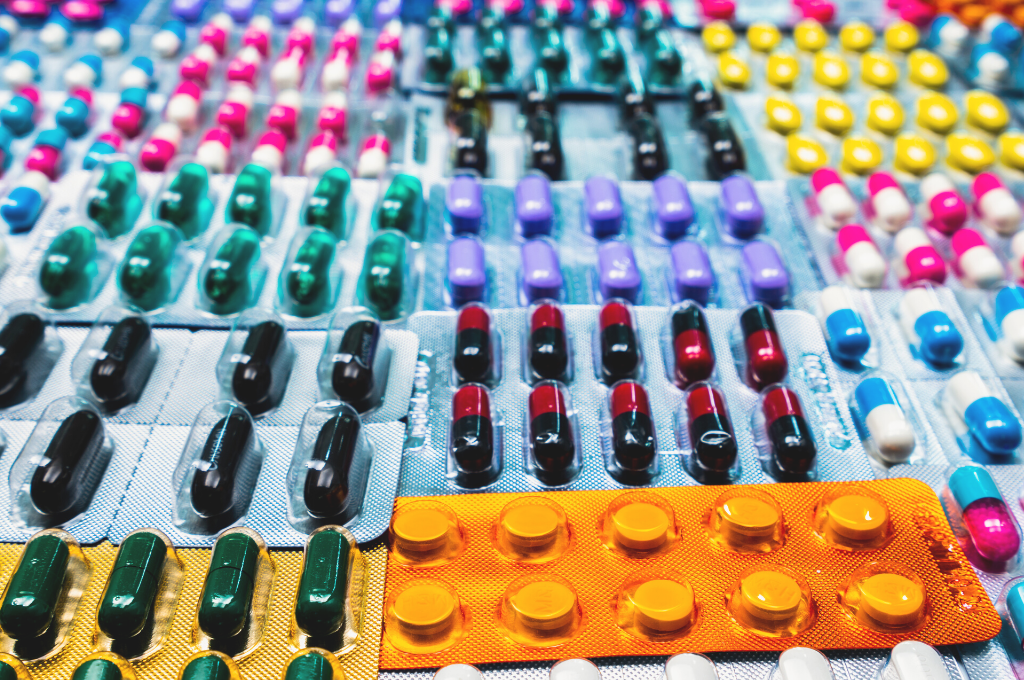For pharmaceutical industry companies, each day of market monopoly enjoyed thanks to a patent means some handsome profits. No wonder that concerns try to extend protection for as long as possible. At the same time, generic drug producers use the Bolar exemption to enter into the game as quickly as possible.
Specificity of the patent monopoly in the pharmaceutical industry
Generally, by being granted a patent you acquire the right to exclusively use an invention for profit-making or business purposes in the whole territory of the Republic of Poland and this monopoly is granted for 20 years from the day the patent application is filed with the Polish Patent Office (Article 63 of the IPL[i]). The pharmaceutical industry is also offered a very important possibility of extending protection for a drug product by a maximum of 5 years when the patent protection expires on the basis of an additional protection right, this being Supplementary Protection Certificate (SPC). The legislator’s intention has been to compensate the producers of original drugs for the time between the filing of their patent application and them being allowed to launch the patent-protected product to the market. That is why SPC takes effect at the end of the lawful term of the basic patent. It remains effective for a period that equals the time from the date of basic patent application to the date of the first permission to trade the product in the Community (EU), said period being reduced by 5 years (Article 13 of the Regulation (EC) no 469/2009[ii]). And every day of market exclusivity means profits of millions for the Big Pharma.
How useful the Bolar exemption is for the producers of generic drugs
Meanwhile, on the other side of the barricade created by the exclusive rights of the original drug producers, there are a whole lot of generic drug producers lying in wait to roll out their generic drug as soon as possible. They would also like to be sure that they won’t infringe patents of the entities that were the first to develop and launch a given drug to the market. It’s in their interest to start trading their generic drug the moment the patent protection expires. To be able to do that, however, they need to have a valid permission to trade their product. Here, an important question comes up. Are the producers of generic drugs allowed – with the patent for the original drug still in force – to start work to test the active substance and finally to start producing the drug? Are they allowed to apply for the marketing authorisation already then to be able to immediately roll out their product the moment the basic patent (plus a possible SPC) expires?
It turns out the answer is yes and the above described situation is the so-called Bolar exemption in the patent law. It owes its name to one of the parties (although it’s also sometimes referred to as Roche-Bolar exemption) to the dispute resolved by the United States Court of Appeals for the Federal Circuit (Roche Products, Inc. vs. Bolar Pharmaceutical Co. Inc. 733 F. 2d 858, CAFC 1984[iii]). In their decision, the court stated that the actions by Bolar Pharmaceutical Co. Inc. taken in connection with them trying to obtain FDA (Food and Drug Administration) approval for their flurazepam drug (generic in relation to Dalmane® product by Roche) at the time when Roche’s basic patent was still effective do not fall into allowed experimental use.
The allowed experimental use, i.e. research privilege, is referred to in the national provisions in Article 69.1.3) of the IPL which reads “The employing of an invention for search and experimental purposes, for the evaluation thereof, analysis or teaching shall not be considered an act of infringement of a patent”.
However, in Roche vs. Bolar case, the United States Court of Appeals for the Federal Circuit stated that the experimental use of the patented substance by Bolar was of commercial nature only, i.e. it was business-related and profit-oriented. Following this decision, the United States Congress passed the Hatch-Waxman Act which permitted use of a patented substance for the purpose of developing and sharing information in accordance with statutory provisions on the use or sale of drug products thus establishing the registration privilege in American legislation.
In the Polish Industrial Property Law the Bolar exemption is included in Article 69.1.4) which provides that “The exploitation of an invention to a necessary extent, for the purpose of performing the acts as required under the provisions of law for obtaining registration or authorisation, being, due to the intended use thereof, requisite for certain products to be allowed for putting them on the market, in particular those being pharmaceutical products, shall not be considered an act of infringement of a patent”.
Bolar exemption in national judicial decisions
The Bolar exemption has been interpreted in national judicial decisions in several interesting ways. For instance, the Civil Chamber of the Supreme Court in decision IV CSK 92/13 of 23 October 2013 stated that a patent holder may be denied the rights provided for in Article 66.1 of the IPL (i.e. the right to prevent any third party not having his consent from exploiting his invention for profit or for professional purposes by way of (…) making, using, offering, putting on the market a product that is the subject matter of the invention, or importing the product for such purposes; or employing a process that is the subject matter of the invention, as well as using, offering, putting on the market or importing for such purposes the product directly obtained by that process) only for the sake of a generic drug producer who takes actions set forth in Article 69.1.4) of the IPL. This means that an entity requesting marketing authorisation can take the actions covered by the Bolar exemption only on their own, without participation of third parties, with the latter happening in the case before the Civil Chamber of the Supreme Court, where it was a subcontractor that produced the active ingredient for the Polish producer of generic drugs. Probably, this exceptional case was a direct motive to change the wording of Article 69.1.4) in the recent amendment of the IPL that takes effect 27 February 2020. The latest wording of this Article will be as follows: “The exploitation of an invention by way of making, using, storing, warehousing, offering, putting on the market, exporting or importing for the purpose of performing the acts as required under the provisions of law for obtaining, also by a third party, registration or authorisation, being, due to the intended use thereof, requisite for certain products to be allowed for putting them on the market, in particular those being pharmaceutical products, in the territory of European Economic Area or another state shall not be considered an act of infringement of a patent”.
Moreover, the Administrative Court in Gdańsk in decision I ACa 320/12 of 26 June 2012 emphasised that the national legislator is authorised to regulate only those events that fall within their jurisdictions. Accordingly, it may allow to exploit the invention without the consent of the patent holder, under the Bolar exemption, only when it comes to actions in connection with registration or authorisation to be granted in the area of its jurisdiction. The authorities cannot interfere with events that take place in other states.
Research privilege and registration privilege
In conclusion, it should be stressed that use of an invention for scientific and research purposes to evaluate, analyse or use it for teaching represents no infringement of the patent holder’s exclusivity. This allows for the development of science despite the existence of patent protection. The Bolar exemption then enables generic drug producers to start testing the substitute – this usually being cheaper – based on the patent-protected active substance and obtain the permission to trade with patent protection still effective. This way the monopoly of the original drug producer is maximally shortened and substitute drugs are launched to a given market immediately after the protection for the innovative drug expires.
[i] IPL – Industrial Property Law of 30 June 2000 (consolidated text of the Journal of Laws of 2017, item 776)
[ii] Regulation (EC) no 469/2009 – REGULATION (EC) No 469/2009 OF THE EUROPEAN PARLIAMENT AND OF THE COUNCIL of 6 May 2009 concerning the supplementary protection certificate for medicinal products
[iii] https://law.justia.com/cases/federal/appellate-courts/F2/733/858/459501/
Author: Adam Trawczyński



